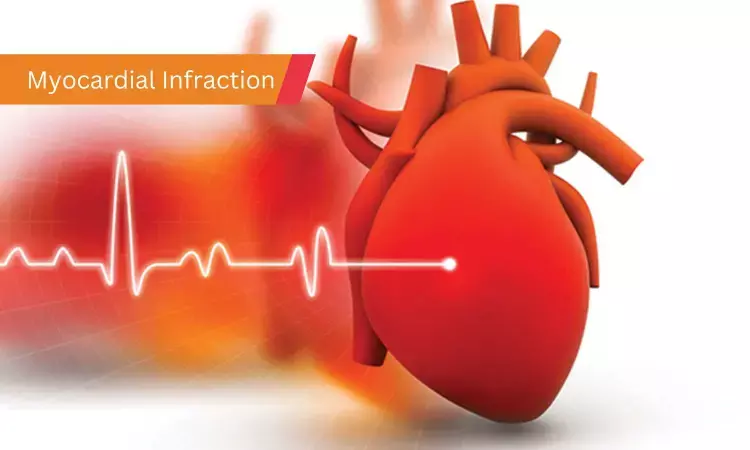- Home
- Medical news & Guidelines
- Anesthesiology
- Cardiology and CTVS
- Critical Care
- Dentistry
- Dermatology
- Diabetes and Endocrinology
- ENT
- Gastroenterology
- Medicine
- Nephrology
- Neurology
- Obstretics-Gynaecology
- Oncology
- Ophthalmology
- Orthopaedics
- Pediatrics-Neonatology
- Psychiatry
- Pulmonology
- Radiology
- Surgery
- Urology
- Laboratory Medicine
- Diet
- Nursing
- Paramedical
- Physiotherapy
- Health news
- Fact Check
- Bone Health Fact Check
- Brain Health Fact Check
- Cancer Related Fact Check
- Child Care Fact Check
- Dental and oral health fact check
- Diabetes and metabolic health fact check
- Diet and Nutrition Fact Check
- Eye and ENT Care Fact Check
- Fitness fact check
- Gut health fact check
- Heart health fact check
- Kidney health fact check
- Medical education fact check
- Men's health fact check
- Respiratory fact check
- Skin and hair care fact check
- Vaccine and Immunization fact check
- Women's health fact check
- AYUSH
- State News
- Andaman and Nicobar Islands
- Andhra Pradesh
- Arunachal Pradesh
- Assam
- Bihar
- Chandigarh
- Chattisgarh
- Dadra and Nagar Haveli
- Daman and Diu
- Delhi
- Goa
- Gujarat
- Haryana
- Himachal Pradesh
- Jammu & Kashmir
- Jharkhand
- Karnataka
- Kerala
- Ladakh
- Lakshadweep
- Madhya Pradesh
- Maharashtra
- Manipur
- Meghalaya
- Mizoram
- Nagaland
- Odisha
- Puducherry
- Punjab
- Rajasthan
- Sikkim
- Tamil Nadu
- Telangana
- Tripura
- Uttar Pradesh
- Uttrakhand
- West Bengal
- Medical Education
- Industry
PCSK9 inhibitors act through plaque stabilisation not by improving coronary physiology: PACMAN-AMI trial

Switzerland: Acute myocardial infarction (AMI) patients treated with alirocumab had a significant regression in angiographic diameter stenosis (DS%). In contrast, no improvement was observed in coronary haemodynamics, says a recent study published in EuroIntervention.
The study showed that treatment with alirocumab, a PCSK9 (proprotein convertase subtilisin/kexin type) inhibitor, for one year did not lead to a statistically significant difference in the number of patients with a quantitative flow ratio (QFR) increase versus placebo. After excluding vessels with the least flow limitation (i.e., QFR>0.95), the results indicate that alirocumab may exert a small but significant beneficial effect on coronary haemodynamics in more flow-limiting diseases.
Additionally, patients on alirocumab showed statistically significant regression of DS% by 1.0% versus a 1.7% increase with placebo.
Previous studies have shown that treatment with PCSK9 inhibitors on top of statins results in plaque regression and stabilisation. However, there is no information on the effects of PCSK9 inhibitors on coronary physiology and angiographic DS%.
Therefore, Sarah Bär, Bern University Hospital Inselspital, Bern, Switzerland, and colleagues conducted a substudy of randomised, controlled, double-blind PACMAN-AMI trial comparing alirocumab versus placebo on top of rosuvastatin. The team aimed to investigate the effects of alirocumab on coronary haemodynamics as assessed by DS% and QFR by 3D-QCA (three-dimensional quantitative coronary angiography) in non-infarct-related arteries (non-IRA) among AMI patients.
For this purpose, the researchers assessed QFR and 3D-QCA at baseline and one year in any non-IRA ≥2.0 mm and 3D-QCA DS% >25%. The prespecified primary endpoint was the number of patients with a mean QFR increase at one year, and the secondary endpoint was the change in 3D-QCA DS%.
The study revealed the following findings:
- Of 300 enrolled patients, 265 had a serial follow-up, of which 193 underwent serial QFR/3D-QCA analysis in 282 non-IRA.
- At one year, QFR increased in 53.2% of patients with alirocumab versus 40.4% with placebo (Δ12.8%; odds ratio 1.7).
- DS% decreased by 1.03±7.28% with alirocumab and increased by 1.70±8.27% with placebo (Δ–2.50%).
The findings revealed that treating AMI patients with the PCSK9 inhibitor alirocumab on top of rosuvastatin for one year led to significant 1.0% regression of 3D-QCA DS% versus an increase of 1.7% with placebo. The researchers observed no difference in the change in coronary physiology between treatment groups. However, compared to placebo-treated patients with a baseline QFR ≤0.95 more frequently, alirocumab showed improved coronary haemodynamics.
"A significant 1.0% angiographic stenosis regression with alirocumab treatment did not translate into a significant improvement in coronary physiology as evaluated by QFR," the researchers wrote. "Thus, PCSK9 inhibitors may rather act through plaque stabilisation than through improvement of coronary haemodynamics."
Reference:
Bär S, Kavaliauskaite R, Otsuka T, Ueki Y, Häner JD, Siontis GCM, Stortecky S, Shibutani H, Temperli F, Kaiser C, Iglesias JF, Jan van Geuns R, Daemen J, Spirk D, Engstrøm T, Lang I, Windecker S, Koskinas KC, Losdat S, Räber L. Impact of alirocumab on plaque regression and haemodynamics of non-culprit arteries in patients with acute myocardial infarction: a prespecified substudy of the PACMAN-AMI trial. EuroIntervention. 2023 Jun 21:EIJ-D-23-00201. doi: 10.4244/EIJ-D-23-00201. Epub ahead of print. PMID: 37341586.
Dr Kamal Kant Kohli-MBBS, DTCD- a chest specialist with more than 30 years of practice and a flair for writing clinical articles, Dr Kamal Kant Kohli joined Medical Dialogues as a Chief Editor of Medical News. Besides writing articles, as an editor, he proofreads and verifies all the medical content published on Medical Dialogues including those coming from journals, studies,medical conferences,guidelines etc. Email: drkohli@medicaldialogues.in. Contact no. 011-43720751


